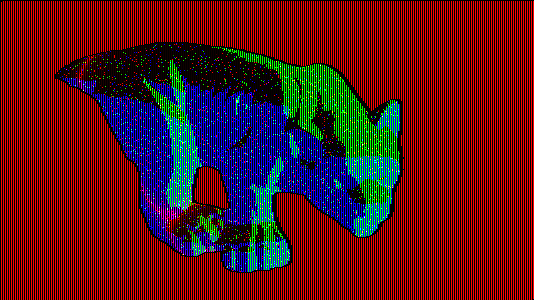As the title says I want to calculate the surface normals of a given depth image by using the cross product of neighboring pixels. However, I do not really understand the procedure. Does anyone have any experience?
Lets say that we have the following image:
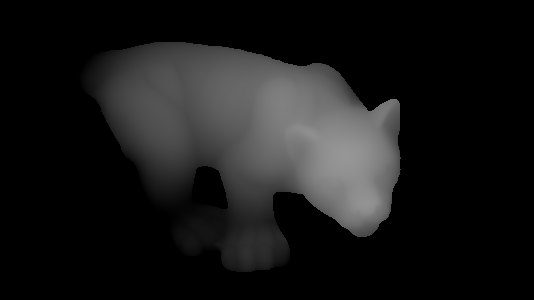
what are the steps to follow?
Update:
I am trying to translate the following pseudocode from this answer to opencv.
dzdx=(z(x+1,y)-z(x-1,y))/2.0;
dzdy=(z(x,y+1)-z(x,y-1))/2.0;
direction=(-dxdz,-dydz,1.0)
magnitude=sqrt(direction.x**2 + direction.y**2 + direction.z**2)
normal=direction/magnitude
where z(x,y) is my depth image. However, the output of the following does not seem correct to me:
for(int x = 0; x < depth.rows; ++x)
{
for(int y = 0; y < depth.cols; ++y)
{
double dzdx = (depth.at<double>(x+1, y) - depth.at<double>(x-1, y)) / 2.0;
double dzdy = (depth.at<double>(x, y+1) - depth.at<double>(x, y-1)) / 2.0;
Vec3d d = (dzdx, dzdy, 1.0);
Vec3d n = normalize(d);
}
}
Update2:
Ok I think I am close:
Mat3d normals(depth.size(), CV_32FC3);
for(int x = 0; x < depth.rows; ++x)
{
for(int y = 0; y < depth.cols; ++y)
{
double dzdx = (depth.at<double>(x+1, y) - depth.at<double>(x-1, y)) / 2.0;
double dzdy = (depth.at<double>(x, y+1) - depth.at<double>(x, y-1)) / 2.0;
Vec3d d;
d[0] = dzdx;
-dzdx;
d[1] = dzdy;
-dzdy;
d[2] = 1.0;
Vec3d n = normalize(d);
normals.at<Vec3d>(x, y)[0] = n[0];
normals.at<Vec3d>(x, y)[1] = n[1];
normals.at<Vec3d>(x, y)[2] = n[2];
}
}
which gives me the following image:
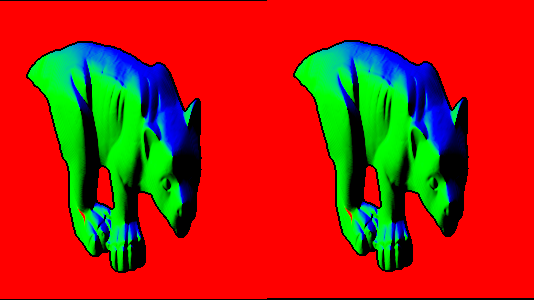
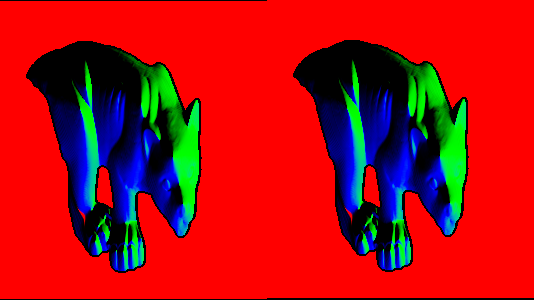
Update 3:
following @berak's approach:
depth.convertTo(depth, CV_64FC1); // I do not know why it is needed to be transformed to 64bit image my input is 32bit
Mat nor(depth.size(), CV_64FC3);
for(int x = 1; x < depth.cols - 1; ++x)
{
for(int y = 1; y < depth.rows - 1; ++y)
{
/*double dzdx = (depth(y, x+1) - depth(y, x-1)) / 2.0;
double dzdy = (depth(y+1, x) - depth(y-1, x)) / 2.0;
Vec3d d = (-dzdx, -dzdy, 1.0);*/
Vec3d t(x,y-1,depth.at<double>(y-1, x)/*depth(y-1,x)*/);
Vec3d l(x-1,y,depth.at<double>(y, x-1)/*depth(y,x-1)*/);
Vec3d c(x,y,depth.at<double>(y, x)/*depth(y,x)*/);
Vec3d d = (l-c).cross(t-c);
Vec3d n = normalize(d);
nor.at<Vec3d>(y,x) = n;
}
}
imshow("normals", nor);
I get this one:
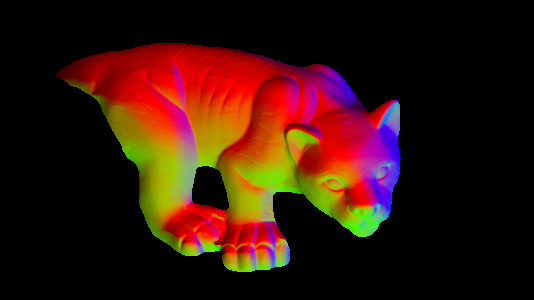
which seems quite ok. However, if I use a 32bit image instead of 64bit the image is corrupted:
